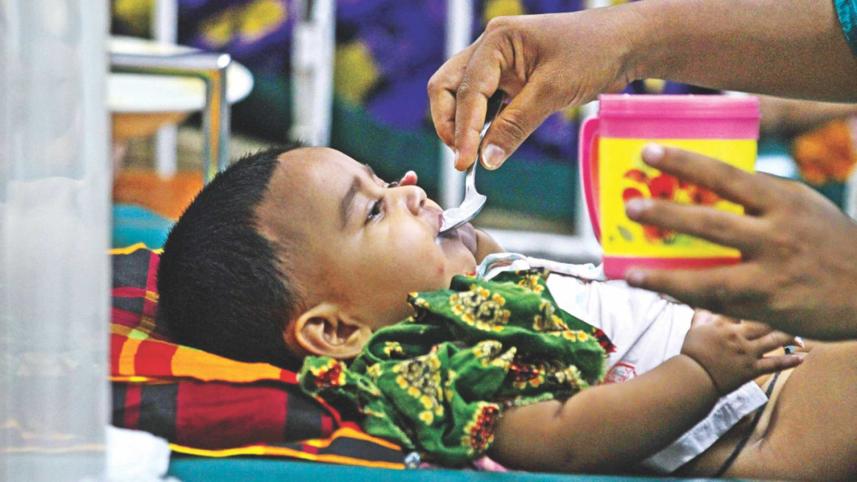Timely inoculation a must to check cholera outbreak

The cholera outbreak continues to be a headache for residents in certain areas of Dhaka as well as hospitals, doctors and public health officials. The number of patients requiring hospital admissions is still high, with icddr,b—which recorded an all-time daily high of 1,383 cases on April 4, 2022—still receiving about 800 patients a day. Against this background, it is welcome news that the government has decided to launch a vaccination drive starting next month to contain the situation.
As part of the campaign, a total of 2.3 million people, aged one year and above, will get oral cholera vaccines in five diarrhoea-prone areas in Dhaka. We hope the campaign would not stop there, given the huge population that resides in close proximity in the capital. The drive should continue especially in slum areas where a large number of people live in severely unhygienic conditions. We also strongly believe the quality of water supplied by Dhaka Wasa needs to be improved drastically. Though health experts have blamed the contaminated water supplied by Wasa for the severe forms of diarrhoea in recent times, Wasa authorities have taken little visible action in this regard. Inoculation is only half the solution—if we cannot ensure access to clean water, this disease will keep coming back.
In 2020, the health directorate had vaccinated 12 lakh people with the first dose of cholera vaccines in six areas of Dhaka. Unfortunately, the second dose couldn't be administered because of the Covid-19 emergency. Now that the scourge has weakened significantly, the full course will hopefully be administered without further hassle.
It can be recalled that the WHO had launched wide-scale vaccination drives against cholera in a number of African countries with considerable success. This inspired Bangladesh to replicate the programme, and in 2011, the World Health Assembly called for member states to strengthen efforts to prevent and control cholera mainly through the use of oral cholera vaccines, in conjunction with other recommended prevention and control methods.
So adequate and timely inoculation is a must, and we're glad to know that the health department has plans to widen the vaccination coverage in the future upon successful completion of the drive in May. But clearly, more needs to be done in terms of prevention. We urge the government to ensure greater coordination and collaboration among the health authorities, Dhaka Wasa and other stakeholders to successfully eliminate this annual threat to public health.



 For all latest news, follow The Daily Star's Google News channel.
For all latest news, follow The Daily Star's Google News channel.
Comments